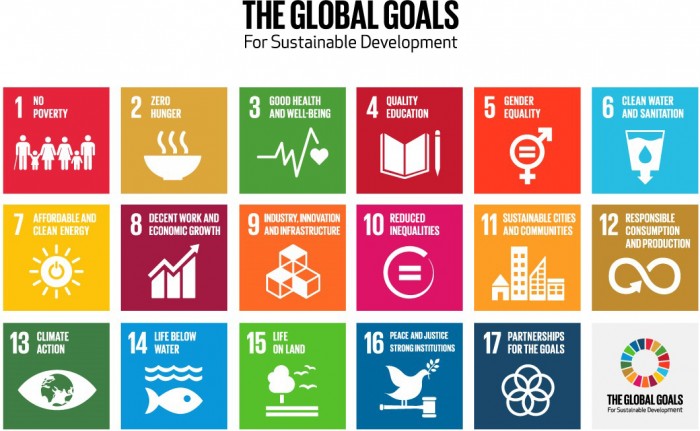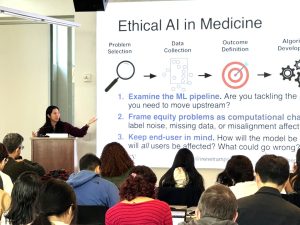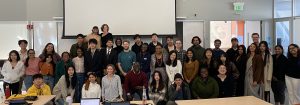By Sybil Lewis
On September 25, 2015, the United Nations adopted the 2030 Agenda for Sustainable Development, establishing the Sustainable Development Goals (SDGs) to end poverty, hunger, and inequality worldwide.
The robust set of goals was formulated and agreed to by 193 countries and represent, said UN Secretary-General Ban Ki-moon, “an agenda for people to end poverty in all its forms—an agenda for the planet, our common home.” Also known as Global Goals, the SDGs comprise 17 goals and 169 targets, such as Clean Water and Sanitation, Gender Equality, and Climate Action.”
The Sustainable Development Goals replace the UN’s Millennium Development Goals (MDGs), which were established by world leaders in September 2010, along with a 15-year agenda to tackle similar issues including poverty, hunger, and child education. According to a 2015 UN report, the MDGs “produced the most successful anti-poverty movement in history,” reducing the number of people living in extreme poverty by more than half and achieving gender parity in primary schools in almost all countries.
While the MDGs were successful, progress has been uneven across regions and countries. Shortcomings remain in many target areas, such as climate C02 emissions that have increased by over 50 percent since 1990 and the fact that over 160 million children under age five have an inadequate height due to malnourishment.
The idea of the SDGs emerged at the 2012 Rio+20 meeting, where the dimensions of sustainable development were identified as environmental, social, and economic—thus broadening definitions of international development beyond economic indicators. Furthermore, the MDGs laid out eight goals for developing countries, while the SDGs acknowledge that sustainable development cannot be achieved unless all countries participate.
Since its founding in 2006, the Blum Center for Developing Economies has supported people and projects working to achieve several of the SDGs. Through the Development Impact Lab and the Big Ideas@Berkeley competition, the Blum Center has trained and promoted interdisciplinary innovations that deliver poverty-alleviating, sustainable solutions across the world.
Over the past 10 years, winners of the Big Ideas@Berkeley student innovation competition have developed numerous life saving and improving products and services—from portable power units providing electricity to medical facilities in Africa and the Caribbean, to a coalition of students and faculty working to reduce UC Berkeley’s greenhouse emissions.
The Development Impact Lab (DIL) is a global consortium of research institutes, nongovernmental organizations, and industry partners supported by the U.S. Agency for International Development (USAID) that are committed to advancing international development through science and technology innovations. DIL is headquartered at UC Berkeley where students, faculty, researchers, and experts collaborate to create and implement various solutions.
For example, Darfur Stoves, a DIL and Big Ideas@Berkeley funded project, was started by a team of UC Berkeley researchers who designed a cookstove specifically for refugees of the Darfur conflict. Since then, the Darfur Stoves project has expanded, providing wind-resistant stoves to people in crisis situations in Ethiopia, Haiti, and Mongolia.
Click here to learn more about Blum Center teams advancing the Sustainable Development Goals.






